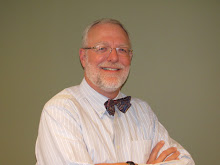I’m reading Jim Loehr’s book, The Power of Story: Change Your Story, Change Your Destiny in Business and in Life (Amazon link). Loehr is a psychologist who runs the Human Performance Institute in Orlando, FL, and works with world class athletes, business executives and other high achievers to hone their stories so that they perform at optimal levels. His premise is that we tell ourselves stories that help us navigate through life because they provide structure and direction. The stories we tell ourselves give our lives meaning.
Because the stories we create and tell about ourselves form the “only reality we will ever know in this life…and since it’s our destiny to follow our stories, it’s imperative that we do everything in our power to get our stories right” (Loehr’s emphasis). Most of us, he asserts, get our stories wrong; or more accurately, tell a story that’s really someone else’s – our parents, our bosses, our spiritual advisors and others who have influenced us throughout our lives.
Loehr argues that the most important story we tell is the one we tell ourselves: “if you aren’t the author of your own story, you’re the victim of it” and at the heart of our story is purpose, one of the fundamentals of good storytelling. Purpose gives our life story meaning, it is never small, but grand, heroic and epic; it’s our ultimate mission in life, the thing that continually renews our spirit. Our ultimate mission spells out our most overarching goals that we want to achieve and how we must do it – our values and beliefs. Thus, our ultimate mission/purpose must be clearly defined; and until we can define it, we can’t come up with our own story, and remain trapped by our old story.
Loehr offers step by step exercises to determine our old story; discovering where it is out of alignment with our values and beliefs and then developing a new story based on our ultimate mission.
So the story we tell about ourselves is what gives our life meaning – in our relationships, our spirituality and our work. If we’re not telling the right story we’re not living the right life, but someone else’s sense of our life.
Have you examined your story? Does it align with your purpose, your ultimate mission? If not, can you determine the voice in your story (your parents, your boss, etc.)? Can you find and retain your voice?
Is the story you’re telling yourself precluding you from really doing what you want to do? Can you articulate what you really want to do?
Can you write a new story?



No comments:
Post a Comment